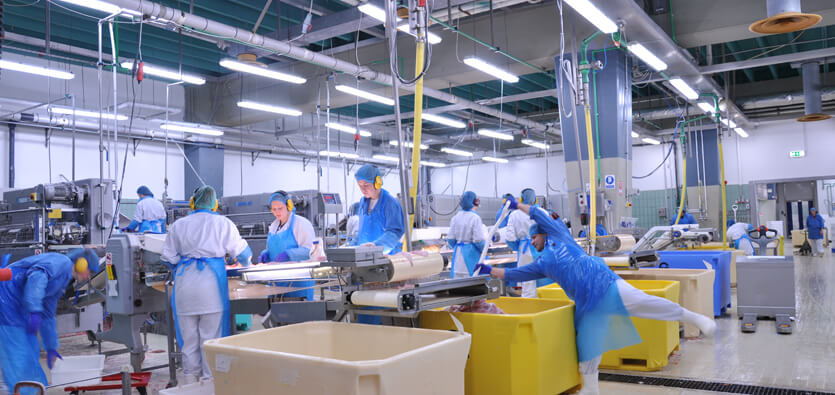
Industrial robots and automated manufacturing systems have completely transformed almost every industrial sector and have improved productivity and operational efficiency to an unprecedented level. The food industry, however, is accepting new technology rather reluctantly and gradually due to food products differing significantly in shape and consistency. It is challenging to develop economically viable automation solutions for a variety of complex production procedures. This is why many manufacturers in this industry still rely on manual operations.
The larger manufacturers mostly utilize state-of-the-art automation technology as they can afford to invest in product development and engineering research. Industrial automation makes it easy to adapt to consumer’s rapidly changing requirements. In fact, streamlining production processes through technology is the only way to meet or exceed market expectations. Being a manufacturer, you can either improve your existing equipment and make it more efficient or install innovative engineering solutions in order to meet future challenges.
Automated processing and packaging systems connect various components in a plant and enable managers to control the entire process and gather valuable data through a central computer. A central control allows facility managers to obtain quick access to information related to raw material, operating parameters of a machine, and overall operational efficiency. Following are some reasons why the food industry should invest in modern automation technology:
Consistent Quality
The implementation of modern technology is inevitable when it comes to producing high-quality products consistently. Automated processing and packaging gives operator greater control over consistency, which means a producer can deliver quality products time after time. Since automation makes it easy to monitor equipment performance parameters, the process to locate and resolve issues becomes hazard-free.
Improved traceability
The element of traceability has gained considerable attention as it allows to quickly recall products and track production. It is important to trace the history of products at any stage in the chain and to track down product information: raw material intake, packaging data, processing procedures, distributions channels, etc. By adopting automation and streamlining traceability, a manufacturer can cut down on regulatory compliance costs and improve key operations.
Improved safety
When machine vision and automated systems work together, managers get a more granular view of every step in the process. The process to modify safety standards becomes smooth as a change in one process does not affect other areas.
Conclusively speaking, automation brings about safety, error-free production, transparency, and consistent quality which is critical to maintaining a brand’s good reputation and keeping both consumer and retailer satisfied. If you are still relying on manual food processing, it’s high time to implement automation and improve your bottom line.
BP Automation is an automation engineering company in Canada where we design and manufacture automation solutions that streamline complex production processes and make them more profitable. Reach us for a free consultation and see how we can help you improve the productivity and efficiency of your food processing plant.

